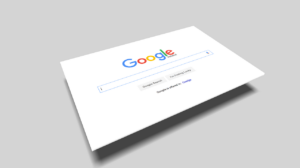Human Resources (HR) are undeniably centered around individuals –coming across the right team for completing a project, motivating the team to deliver the best performance at the workplace, and helping them to establish and retain meaningful relationships.
In the past few years, the way organizations reach out for talent management has significantly changed. The entire scenario has been revolutionized with the advent of high-end technology and rapid automation. HR management systems assist with the processes of hiring talent, monitoring employee attendance, and improving retention rates.
The HR industry looks forward to several more innovations and technology trends in the coming years. Here are some you can unravel in the next future:
1. Artificial Intelligence in HRM
HR or Human Resources is indeed linked to people management. For a long time, HR professionals have been executing HR-related processes manually, conversing with employees in person, and protecting files and information in hard-copy drives.
The technology wave in the field of HRM came into operation during the late 90s. Organizations wanted to streamline day-to-day operations with advanced features like talent management, performance management, and ATS. With automated recruitment, there is reduced human bias in the entire recruitment process. AI-powered chatbots can also help in solving a number of HR-specific issues like making necessary data changes and updating personal information.
In addition to internal use, chatbots can also help in streamlining the overall candidate experience. More revolutionary chatbots are capable of handling the first-level application screening process and even scheduling interviews.
2. Cloud-based HR
Remote working is rapidly becoming the new normal –especially since the advent of the global pandemic. Increasingly, a number of companies are moving to the remote-first model. There are companies that are offering the option of remote working to their employees.
Leading productivity and collaboration tools like Trello and Slack have played a pivotal role in bringing about this transformation. This is the reason why HR software solutions have also become cloud-based. People management processes are expected to be scalable and quick. It is only possible with the help of cloud-based HR tools.
Cloud-based HR solutions enable HR to access employee data interactively in real-time while making a decision accordingly. The service tools that are cloud-based also offer employees improved control over data. Therefore, it makes it easier for companies to evaluate engagement and productivity.
3. VR Training and Onboarding
In the coming future, we can expect organizations to jump on the VR (Virtual Reality) wagon effectively. Several organizations of the world have already started observing affirmative results in the given context. IKEA, Walmart, FedEx, and others have started leveraging VR training for expanding the recruitment programs.
Virtual Reality products for end consumers are easily accessible and cheaper. Therefore, these are great options for corporate trainers. VR helps with onboarding –a key element in terms of staff retention. How can businesses implement VR in the modern onboarding process? One way to ensure the same is through virtual tours of the work environment. This allows new employees to get familiar with the environment before even working there.
4. Employee Self-service Tools
HR managers are observed to serve as the link between employees (execution teams) and management (project teams). Therefore, in most cases, Human Resource managers are overloaded with assignments and tasks. Previously, a dedicated talent manager served as the go-to person for every employee with respect to gaining data gathering or workplace updates.
In the modern era, with the major leap in HR technology and its implementation, there has been rapid growth and development of self-service tools within organizations. These platforms help talent managers to ensure that the team remains updated without answering the questions of each & every employee.
The effect of self-service tools is going to be immense once these become commonplace in the modern business scenario. Some of the benefits that companies can access through the integration of a self-service platform into the respective workplace are:
- Improved task efficiency of top-level administration
- Real-time updates for workers
- Improved transparency –employees can observe the source of any workplace data while validating them
- Improved team morale and reduced burnout
5. Blockchain Integration
As organizations continue embracing digital transformation, business managers are expected to handle new challenges –including access management and data security. This is why HR teams are looking into new trends like the Blockchain technology for ensuring workplace transparency and data integrity.
Effective Blockchain integration will help HR managers in achieving:
- Standardization: As new HR trends keep entering the market every now & then, it becomes difficult for HR managers to come up with dedicated sharing standards and unified data storage. Based on the toolset used by the team, employee information can be stored in different values and formats.
With the help of electronic distributed ledger advancements, HR managers are capable of creating and sharing development practices between peers and software developers. Blockchain will help in improving collaboration between subsequent talent departments effectively. It will also help in providing software programmers with basic development guidelines to improve the quality of HR organization systems.
- Trust: With the help of key-based access, Blockchain ledgers are regarded as tamper-proof. The technology depicts immense implications for ensuring access management. Businesses can make sure that only trusted individuals will have access to data.
6. Real-time Performance Management
The presence of a feedback-driven system proves to be useful across different industries. Project management mechanisms like Agile are developed on a stage-by-stage feedback structure for helping in making sure that the product will match the right contract agreement.
In HR, getting feedback constantly on employee satisfaction and performance is pivotal to the success of the organization. Moreover, real-time performance management tools will provide HRs and employees improved visibility into the overall performance.
Conclusion
The future of HR management is closely linked with cutting-edge technology. More organizations will be shifting to single & integrated talent management tools and platforms. To be amongst the forerunners of the industry, you can think of integrating high-end HR management tools into the workflow of your business.





